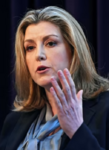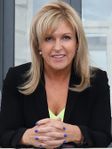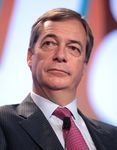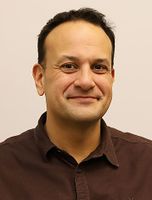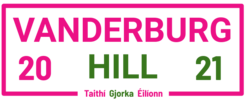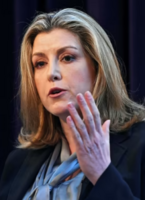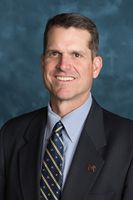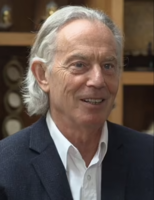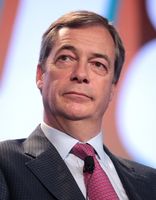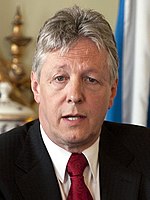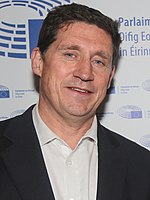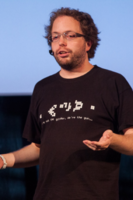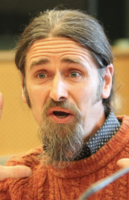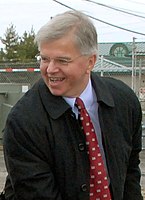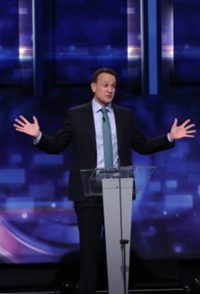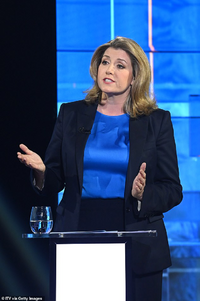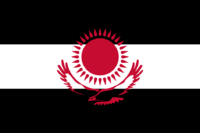2021 Gjorkan presidential election
| ||||||||||||||||||||||||||||||||||||||||||||||||
| Registered | 70,210,005 | |||||||||||||||||||||||||||||||||||||||||||||||
|---|---|---|---|---|---|---|---|---|---|---|---|---|---|---|---|---|---|---|---|---|---|---|---|---|---|---|---|---|---|---|---|---|---|---|---|---|---|---|---|---|---|---|---|---|---|---|---|---|
| Turnout | 54.3% ( | |||||||||||||||||||||||||||||||||||||||||||||||
| ||||||||||||||||||||||||||||||||||||||||||||||||
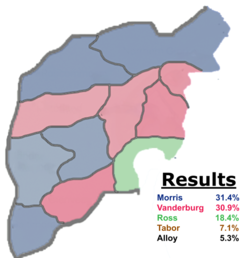 2021 presidential election results by district | ||||||||||||||||||||||||||||||||||||||||||||||||
| ||||||||||||||||||||||||||||||||||||||||||||||||
On June 30, 2021, a presidential election was held in Gjorka to elect the country's president and vice president. The election resulted in victory for Gjorka United candidate Carter Morris and her running mate, John Burreaux. It was the first time since the 2006 presidential election that Gjorka United won a presidential election.
The election is considered to be very controversial and divisive. Five candidates—Morris, Julian Vanderburg, Sindy Ross, Andrew Tabor, and Seban Alloy—received over 5 percent of the popular vote, the most candidates to reach that mark in Gjorka history. Additionally, Morris won the presidency with 32.4 percent of the vote, and voter turnout reached 54.3 percent, both being the least in Gjorkan history. Various news media outlets and politicians have decried various aspects of the election as being "undemocratic".
Contents
Electoral system
The constitution of Gjorka states that the president of Gjorka is to be elected to a five-year term in a popular vote election. Which ever electoral candidate garners the most votes in the election shall be the next president. By law, the election is to be held every five years on June 30 to give due process for a transition of power between administrations. Additionally, presidents are allowed a maximum of two five-year terms; as such, incumbent president Roman Vanderburg was unable to run for a second re-election.
Primaries
Forward Gjorka
Incumbent president Roman Vanderburg of Forward Gjorka was unable to run for re-election as he was term-limited. The main nominees to replace him on the ballot were his vice president and brother, Julian Vanderburg; Assembly Member Andrew Nester; and Majority Leader Zachary Hill. Vanderburg emerged victorious in the primaries, winning 42.1 percent of the party's vote. Following his nomination, he announced Hill would be his running mate for vice president under the slogan "Experience Gjorka Needs".
| Forward Gjorka nominees | |
|---|---|
| Julian Vanderburg | Zachary Hill |
| for President | for Vice President |
| 6th Vice President of Gjorka (2011–2021) |
Majority Leader of the National Assembly of Gjorka (2011–2021) |
| Campaign | |
Gjorka United
Despite increasing its voter count and seats in the 2016 presidential and National Assembly elections, Gjorka United had not had control over any aspect of the Gjorkan government for the past decade. The main nominees to win the presidency were Carter Morris, an assembly member from Baltimore; Victor Kilroy, the mayor of Éire; Sean O'Brien, the former mayor of Rusynia; and Rosa Ryan, the party's former vice presidential nominee in 2016 and an assembly member from Rusynia. Despite Ryan having an early lead, her campaign faced controversy due to a multitude of accusations about her past actions, such allegations of having had an abortion and having female lovers. Ryan's scandals allowed the more right-wing candidates of Morris and Kilroy to overtake her in opinion polling. Eventually, Morris emerged victorious, winning 37.4 percent of the party's vote. Following her nomination, she choose John Burreaux, a close friend, to be her nominee for vice president. They ran under the slogan "A New Gjorkan Century".
| Gjorka United nominees | |
|---|---|
| Carter Morris | John Burreaux |
| for President | for Vice President |
| Assembly Member from Baltimore (2006–2021) |
CEO of Seoltap (1995–2021) |
| Campaign | |
Green Party
The Green Party's presidential primaries were headlined for the second year in a row by Sindy Ross and Jame Gary. Ross and Gary were both co-founders of the Green Party, along with Greg Hammerfell. In the party's 2016 presidential primaries, Gary defeated Ross and secured the party's nomination. In the 2021 primary process, however, Ross emerged victorious with 57.6 percent of the party's vote. Following her nomination, she choose climate activist Don Martindale to be her running mate under the slogan "Our future starts now".
| Green Party nominees | |
|---|---|
| Sindy Ross | Don Martindale |
| for President | for Vice President |
| Co-founder of the Green Party |
Chairman and Founder of Climate Awareness Board (2013–2021) |
| Campaign | |
National Social Party
Andrew Tabor, the founder and leader of the National Social Party, ran virtually unopposed, securing 93.4 percent of the party's vote. It was his fourth consecutive nomination from the National Social Party, and his third consecutive unopposed nomination. Tabor choose fellow assembly member Sam Kilsborg to be his running mate under the slogan "Order, Security, Tabor".
| ||
|---|---|---|
|
||
| National Social Party nominees | |
|---|---|
| Andrew Tabor | Sam Kilsborg |
| for President | for Vice President |
| Assembly Member from Éire (2011–present) |
Assembly Member from Ratoath (2016–present) |
| Campaign | |
Freedom Party
The primary for the Freedom Party was contested by three three major candidates: Alexander Godfried, Johana Cen, and Veronica Roth. Cen and Godfried represented the more radical wing of the party, while Roth represented the moderate wing. Due to the failure of moderate candidates from the party in recent years, Roth fell behind Cen and Godfried in party opinion polling. Godfried emerged victorious with 51.7 percent of the party's vote; he choose Nessa Murtagh to be his running mate and ran under the slogan "Free Gjorka".
| Freedom Party nominees | |
|---|---|
| Alexander Godfried | Nessa Murtagh |
| for President | for Vice President |
| Assembly Member from Northern Gjorka (2016–2021) |
Chair of the Small Business Bureau (2013–2017) |
| Campaign | |
Other candidates
The Gjorkan Pirate Party nominated Seban Alloy to be its next presidential candidate, as it had done previously in 2016. Alloy was selected by the party's leadership rather than a through a primary process.
| Pirate Party nominees | |
|---|---|
| Seban Alloy | Kyle Gardener |
| for President | for Vice President |
| Assembly Member from Gjorka City (2016–present) |
Former Chair of the Gjorkan Technocratic Alliance (1998–2012) |
| Campaign | |
Ronn Berot was selected to be the presidential nominee by the Pro-Gjorkan Initiative. Due to financial restraints, the party was unable to hold a primary; Berot was directly selected by leadership of the party.
| Pro-Gjorkan Initiative nominees | |
|---|---|
| Ronn Berot | Tany Forsythe |
| for President | for Vice President |
| Leader of the Pro-Gjorkan Initiative (2001–2021) |
Podcaster |
| Campaign | |
Other nominees from minor parties:
| Presidential candidate |
Vice presidential candidate |
Party | |
|---|---|---|---|
| Jordan Gleeson | Casey Kinnerk | Workers Liberation Front | |
| High King Weelington | Archduke Furdinand | The Ban Orphans Party | |
| Milo Hackett | Jaxon MacBride | Gjorkan Royalist Party | |
| Cole MacManus | Oliver Wilson | Societal Liberation Party | |
| Drew Assler | Tomás Bynon | Gjorkan Valkist Party | |
Campaign
The Vanderburg's candidacy was marred by political gaffes and blunders. Following his nomination in early march, Vanderburg entered the race with a sizeable lead over his fellow nominees, polling at an average of 41 percent. This is attributed to the high approval rating of his brother—Roman at the time had a 57 percent approval rating—and the overall success of his administration. Vanderburg's polling numbers, however, immediately dropped after the announcement of Hill being his running mate. While Hill had been successful as the leader of Forward Gjorka in the National Assembly, the combination of Hill and Vanderburg was seen as described by the Gjorka Times, "too much politician" and "out of touch". Neither of the two were able to capture the same relatability Roman was able to. In addition, both Hill and Vanderburg were both moderates within Forward Gjorka, which dissatisfied much of its left-wing base. As well, Vanderburg became well known for his "gaffes", oftentimes making blunders during his speeches. By the end of April, Vanderburg was just barely polling above his competitors at 32 percent, where he stayed for much of the remainder of the campaign. The issues Vanderburg emphasized over the course of his campaign was a continuation of the Vanderburg administration. This included: strengthening of Gjorka's position within the globe, increase in minimum wage to ₱60, end of coal usage in Gjorka, and loosening of Gjorka's immigration requirements, among others.
Morris' nomination by Gjorka United was extremely controversial from the time her victory was announced. Morris had made a name for herself within Gjorka United for being a fierce hardline conservative. Her nomination made her extremely unpopular with the moderate wing of the party and caused her to poll around 26 percent when her candidacy was first announced. Over the course of her campaign, however, she softened a number of her positions and selected good friend and moderate John Burreaux to be her running mate. This softening of her beliefs made her more popular within the moderate wing of the party and throughout Gjorka, but greatly angered the more conservative wing of the party. Well known party members such as Victor Kilroy, Kurt Josias, and Tessa Jennings denounced her and announced they would no longer vote for her. A significant portion of her base moved to support the National Social Party instead. The issues Morris emphasized across her campaign were: reduction of taxes and restrictions on Gjorka businesses, further increasing Gjorka's military budget, repealing the Universal Healthcare Act, reducing restrictions placed on Gjorkan Garda, and increased presence for Gjorka on the world stage among others.
Ross's campaign began energetically; her announcement that she was nominating Martindale as her vice presidential nominee was shocking to those within the Green Party. It was expected she would choose either Hammerfell or Gary, as the two along with Ross were the co-founders of the party. However, this vice presidential pick was extremely popular with the public as Martindale was a well known climate activist. Ross' campaign focused heavily on her themes of that she was a left-wing outsider. This themes worked great with those dissatisfied with Vanderburg, and led to Ross do well in the polls. Reaching her highest at 20 percent in early may. These numbers dropped once Forward Gjorka began to promote fears that voting for the Green Party was wasting their vote and only helping Morris. Ross' campaign focused heavily on the issues of: climate change, eliminating fossil fuels within Gjorka, a plastic bag tax, entering Gjorka onto the world stage, and increasing taxes on the wealthy among others.
Tabor's candidacy conveyed similar themes to his four previous ones, however, this election cycle, his campaign attacked Gjorka United much more heavily, attempting to win over disillusioned conservative voters. This tactic was largely successful as Morris was unpopular with the paleoconservative and hardline conservative wing of Gjorka United. By mid-May, he was polling at 15 percent, but similarly to Ross and the Green Party, Gjorka United also used the strategy of describing a vote for Tabor as a vote for Vanderburg. Tabor's campaign focused on themes of: removing restrictions on the police, tightening Gjorka's immigration policy, Gjorkan nationalism, increasing the military budget, and withdrawing Gjorka further from the world stage among others.
Alloy's campaign was somewhat supported by moderate youths in Gjorka. Campaigning heavily on a foundation of anti-corruption and that he was not a politician, he won over a number of voters. When his campaign was first announced in March, he was polling at 1 percent, but by the early June, he had reached 5 percent, mostly among youth voters. The main issues for his campaign were: increasing vote access, breaking up large monopiles in Gjorka, reducing Gjorka's copyright laws, capping political donations to politicians, and banning politicians from stock trading among others.
Most other candidates for president struggled to hold public attention, and with the exception of Berot, Godfried, and High King Weelington; none polled consistently above 2 percent. Godfried initally started his campaign polling at 6 percent, but his support for controversial policies such as lowering the age of consent severely affected his campaign. Berot began polling at 3 percent and ultimately dropped to 1 percent where he stayed consistently for the remainder of the campaign. Weelington's number increased following the first presidential debate, as many became disillusioned with the candidates presented; he reached as high as 4 percent, however, due to the frivolous nature of his campaign, he was unable to hold those numbers.
Debates
| 2021 Gjorkan presidential election debates | ||||||||||
|---|---|---|---|---|---|---|---|---|---|---|
| No. | Date | Organizer | Location | Key: P Participant A Absent N Non-invitee I Invitee W Withdrawn | ||||||
| Julian Vanderburg | Carter Morris | Sindy Ross | Andrew Tabor | Seban Alloy | Alexander Godfried | Ronn Berot | ||||
| 1 | April 28, 2021 | City of Rusynia | Rusynia | P | P | P | P | P | P | P |
| 2 | May 19, 2021 | Baltimore University | Baltimore | P | P | P | P | P | N | N |
| 3 | June 23, 2021 | Gjorka Times | Gjorka City | P | P | N | N | N | N | N |
First debate
The first debate was held in Rusynia at the Rusynia National Convention Center and was sponsored by the City of Rusynia. The debate hosted all seven candidates polling above 1 percent which were: Vanderburg, Morris, Ross, Tabor, Alloy, Godfried, and Berot. Once the candidates had finished giving their opening statements, the debate almost immediately fell into chaos. Vanderburg was unable to stay within the one minute response period, and frequently went over. Both Morris and Tabor frequently interrupted other candidates while they were speaking, with Tabor nearly being removed because of it. Ross declared both Forward Gjorka and Gjorka United to be "corrupt pawns for big corporations", which received applause from the audience. In a poll following the debate, only 11 percent of respondents said they that felt two or more of the candidates presented were good options, and over 50 percent said they only found one or none of the candidates as good options. Overall, many political pundits called the debate a "disaster for all involved".
Second debate
The second debate was held in Baltimore at the Baltimore University, which sponsored the event. This debate featured all candidates polling above 5 percent which included: Vanderburg, Morris, Ross, Tabor, and Alloy. The debate was marred with similar problems to the first. Once again, Vanderburg's response often went over the one minute response mark, and Tabor frequently interrupted other candidates. Morris was found by pundits to be much more calm and reserved in this debate, only delivering a couple of interruptions. Both Ross and Alloy were significantly more impassioned in this debate. Ross declared the climate crisis the "Greatest Threat to Mankind ever conceived" and called for Gjorka to sanction any nation that did not take steps to reduce it. Alloy called his fellow debaters "corporate pawns" and often times attacked them on their donations from billionaires. As the debate was drawing to a close, the issue of discrimination against Khoroshiyans was brought up. Tabor in response delivered a fiery two minute speech detailing the various "misdeeds" of the Khoroshiyans and their impact on Gjorkan society. This speech was the main talking point discussed after the debate, with a poll conducted by the Gjorka Daily Mail finding that 52 percent of responses agreed with Tabor and a further 35 percent were undecided.
Third debate
The third debate, hosted by the Gjorka Times in the National Park in Gjorka City, was marred by controversy. Invitees to the debate are at the discretion of the Gjorka Times, but typically feature any remaining candidates polling above 15 percent. Both Tabor and Ross were polling above 15 percent at the time, but were not invited by the Gjorka Times to the event with only Vanderburg and Morris being invited. Ross and Tabor both called the event a "sham", with Ross declaring it to be "undemocratic" and Tabor calling "the biggest fraud the media has conducted in the last 50 years". Pundits remarked the third debate was much more calm and cordial, with neither candidate interrupting the other significantly. Vanderburg still struggled remain within the time, despite having two minutes allotted to him. Both Morris and Vanderburg spent much of the debate denouncing those who voted for Ross or Tabor, and claimed that a vote for one is a vote for the rival party. At the end of the debate, both candidates took the last two minutes to give a message of unity to the Gjorkan people. Many Gjorkans were left dissatisfied with the debate, with the Canton Sun calling the debate a "waste of time".
Opinion polls
| Presidential election polls | |||||||||||
|---|---|---|---|---|---|---|---|---|---|---|---|
| Polling firm | Fieldwork date | Sample size |

|

|

|

|

|

|

|
Lead | |
| Vanderburg (AG) |
Morris (GA) |
Ross (CG) |
Tabor (PSN) |
Godfried (PS) |
Alloy (CP) |
Berot (PGT) |
Unsure | ||||
| Gjorka Times | Jun 24, 2021 | 2,130 | 32.1 | 31.9 | 14.3 | 12.7 | 1.5 | 5.3 | 1.2 | 1.0 | 0.2 |
| Gjorka Times | Jun 16, 2021 | 1,723 | 30.5 | 30.5 | 16.2 | 15.1 | 1.3 | 5.0 | 1.2 | 0.2 | 0.0 |
| Gjorka Times | Jun 2, 2021 | 1,621 | 29.0 | 29.4 | 18.5 | 15.5 | 1.2 | 5.1 | 1.3 | 0.0 | 0.4 |
| Gjorka Times | May 19, 2021 | 1,578 | 29.5 | 29.3 | 18.4 | 15.1 | 1.4 | 4.5 | 1.8 | 0.0 | 0.2 |
| Gjorka Times | May 5, 2021 | 1,632 | 28.5 | 28.2 | 20.2 | 16.1 | 1.3 | 3.5 | 2.0 | 0.2 | 0.3 |
| Gjorka Times | Apr 21, 2021 | 1,789 | 32.5 | 31.7 | 11.3 | 8.1 | 3.3 | 2.3 | 2.5 | 8.3 | 0.8 |
| Gjorka Times | Apr 7, 2021 | 1,678 | 36.4 | 30.2 | 10.6 | 7.5 | 3.5 | 2.1 | 2.5 | 7.2 | 6.2 |
| Gjorka Times | Mar 24, 2021 | 1,432 | 38.2 | 27.7 | 9.1 | 6.9 | 4.3 | 1.8 | 2.9 | 9.1 | 10.5 |
| Gjorka Times | Mar 10, 2021 | 1,505 | 41.2 | 26.4 | 8.7 | 6.3 | 5.1 | 1.2 | 3.2 | 7.9 | 14.8 |
| 2016 election | Jun 30, 2016 | N/A | 48.2 | 38.4 | 3.9 | 4.1 | 3.5 | – | 1.6 | 0.3 | 9.8 |
Results
Polls closed across Gjorka at 8 p.m. GST in June 30, at which point, results began to be released by each district. Most analysts expected an extremely tight race, with Vanderburg only having a 1 percent lead over Morris in the final polls. This was the longest presidential election to be called in Gjorka history since electronic vote counting was introduced, as it took until 5 a.m. June 31 for the Gjorka Times and most other major news in Gjorka to call to the election for Morris. She was elected president with 32.4 percent of the popular vote, the lowest for any victorious candidate in Gjorkan history. Morris is also only the only president in Gjorkan history to win the election without also winning Gjorka City, most of whom voted for Vanderburg. Also notably, Ross was the winning candidate in Greater Nomakoa, the first time Forward Gjorka had lost the district since 2001. Vanderburg gave his concession speech the morning after the election, wishing Morris success and delivering a message of unity. Neither Ross nor Alloy gave concession speeches; both also called her victory "undemocratic", citing her lack of popular support, only winning 32.4 percent of the vote. Both called for the presidential system to be reorganized and for ranked choice voting to be implemented. Tabor did not give a concession speech.
| Candidate | Running mate | Party | Votes | % | |
|---|---|---|---|---|---|
| Carter Morris | John Burreaux | Gjorka United | 12,352,186 | 32.76 | |
| Julian Vanderburg | Zachary Hill | Forward Gjorka | 12,161,566 | 32.25 | |
| Sindy Ross | Don Martindale | Green Party | 5,108,620 | 13.55 | |
| Andrew Tabor | Sam Kilsborg | National Social Party | 4,231,767 | 11.22 | |
| Seban Alloy | Kyle Gardener | Gjorkan Pirate Party | 2,020,573 | 5.36 | |
| Alexander Godfried | Nessa Murtagh | Freedom Party | 601,345 | 1.59 | |
| Ronn Berot | Tany Forsythe | Pro-Gjorkan Initiative | 458,902 | 1.22 | |
| High King Weelington | Archduke Furdinand | The Ban Orphans Party | 343,583 | 0.91 | |
| Jordan Gleeson | Casey Kinnerk | Workers Liberation Front | 218,987 | 0.58 | |
| Cole MacManus | Oliver Wilson | Societal Liberation Party | 94,391 | 0.25 | |
| Drew Assler | Tomás Bynon | Gjorkan Valkist Party | 75,512 | 0.20 | |
| Milo Hackett | Jaxon MacBride | Gjorkan Royalist Party | 41,532 | 0.11 | |
| Total | 37,708,964 | 100.00 | |||
| Valid votes | 37,708,964 | 98.91 | |||
| Invalid/blank votes | 415,066 | 1.09 | |||
| Total votes | 38,124,030 | 100.00 | |||
| Registered voters/turnout | 70,210,005 | 54.30 | |||
Aftermath
Overall, most political pundits agree that the election was the most controversial and divisive in Gjorkan history. The close nature of the election, coupled with the popular dislike of both major candidates, led to a rise in third parties and allowed for Morris to win with the lowest popular vote percentage in Gjorkan history. Despite this, a consistent theme throughout the election cycle with the dislike of all major candidates. Across average polling, none of the major candidates had a consistent above 50 percent approval rating throughout the process. This led to a historic low electoral turnout of 54.3 percent. Additionally, the election is seen as a representation of Gjorka's growing radicalism. The National Social Party is consistently described as far-right, while the Green Party was originally described as far-left when first formed, and still contain significant far-left influence. This radicalization is due in part to the growing unpopularity of Gjorka United and Forward Gjorka for various reasons.
Controversy
Immediately following the election, in their concession speeches, both Ross and Alloy described the election as "undemocratic". This sentiment was shared by a majority of Gjorkans, as found by the Gjorka Times in their poll immediately following the victory of Morris. which asked "Do you feel represented by the outcome of this election?". Around 44 percent of respondents answered no, with a further 17 percent saying somewhat. On her first day in office, Morris entered with a 41 percent approval rating, the lowest of any incoming president. Since the election, calls for Gjorka to abolish first past the post and install other electoral systems, such as ranked choice, have increased significantly. Both the Green Party and the Gjorkan Pirate Party added the installment of ranked choice voting to their parties' agendas. Gjorka United and Forward Gjorka have debated adding it to theirs, but no official movement has been made.
